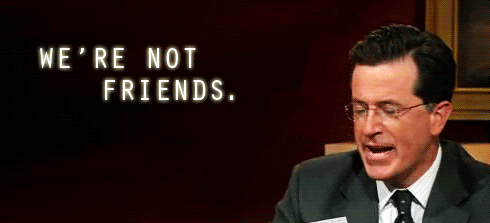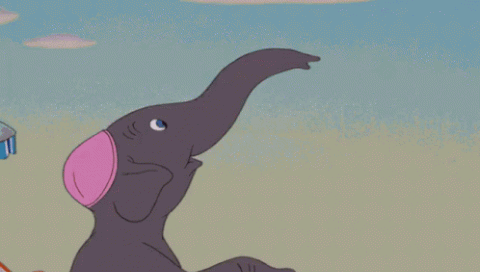What do you wish someone had told you when you embarked upon the adoption process?
A: You won’t be treated like you just gave birth to a baby or treated like you’re a new parent at all. My daughter came home at 1. You’re deer-in-the-headlights parents, you don't know how to do anything, you’re worried your baby won’t breathe in the middle of the night, but nobody acknowledges that and nobody’s concerned about your well being as a parent, as a mother who never gave birth, or as a father.
C: You go through a lot of the same things that birth parents do. You don't attach right away. You experience postpartum depression. You don't get a baby shower. The adoption process can leave you feeling a little isolated - like, I live in one of those enclaves of breastfeeding and natural birth and I didn't go through those things, and I struggled with feeling like a "real mom" for awhile. I wish someone would have told me that there was no way I could avoid gaining baby weight, no matter how the baby came to be ours.
What are some of your least favorite assumptions people make about adoptive moms?
A: My least favorite is that I have fertility issues. You’re making an assumption about my body, and my motives, and that my children are my second choice. Our decision was based on our travels around the world, and wanting to make adoption our first child so any biological child would know that the adopted kid was our first choice, instead of doing it the other way around.
B: I dislike the assumption that adoptive parents are do-gooders, are super unselfish, are trying to save orphans, etc. My husband and I adopted because we wanted to be parents, and it was the right route for us to reach that destination. We aren't any more generous or pious or selfless than anyone else. Loss is a big part of adoption, which is something people usually don't realize or dwell on. To call a child lucky—especially as they get older and may be dealing with some big, complicated, and/or negative feelings about their history and identity—is to gloss over or even negate those very real feelings.
D: While most US adoptions are now "open" (meaning that the birth parents and adoptive parents know who each other are, versus 40 years ago when my husband was adopted and everything was anonymous), that does not mean the birth parents and adoptive parents are going to continue to communicate after the child is born, much less ever see each other again. We worked out an agreement with my daughter's birth parents where I email them pictures and an update on a schedule that gets less and less frequent as time goes on. I have never heard back from either of them after my daughter's sixth month (she's now 4), and we have no plans or expectations to ever see them again. I will keep sending these updates because I promised to, and because one day when my daughter understands more about her background I want to show that I held up my end of the deal. But I do not expect I will ever heard from either her birth mother or father again.
So one of my least favorite assumptions is one I had myself: that open adoption, as well as adopting in the US, automatically equates to the possibility of the birth parents wanting to, or even being able to remain involved in the child's life or the threat of coming to "take the child back" one day. A major reason that birth parents decide to place a child for adoption is that they know they don't have the financial means to care for that child.
I also don't like it when people assume that our daughter doesn't know she was adopted, or act like it's some big secret. I definitely understand why people act this way, but after going through a lot of required adoption training we learned that the worst thing for a child is when they don't understand their birth story or know anything about who their birth parents were, or find out later in life in some big “reveal.” We've talked about our daughter's birth parents and the fact that our daughter was adopted on a regular basis with her since birth, so that when the day comes that she actually understands what it all means, it will be more like things falling into place in her mind than a shock or anything to feel shame about.
C: I project a lot of my own weird guilt about being perceived as buying a baby - our baby is white and of our general heritage, just because that's how it worked out. As a result, I sometimes volunteer that we didn't choose her, we just asked for a reasonably healthy baby and she was the one who came our way.
What do you wish more people knew about being an adoptive parent?
B: I worry about how to protect our kid from hurtful teasing and just plain old ignorance around adoption. If other parents have questions about how to discuss adoption with their own kid, I hope they'll ask me. It's not a taboo subject, and I'm happy to talk about it. There are lots of ways to discuss adoption with children, and some ways are much better than others. In an ideal world children would learn about adoption from adults, not from the comments of mean kids at school. For instance, we don't say that our son's "real mother" "gave him up for adoption" because she "couldn't take care of him" or didn't want him. His birth mother "made a plan for him to be adopted because she couldn't take care of a baby." I know those statements sound pretty similar, but even small words can matter when it comes to this topic.
A: Trauma needs to be addressed in any adoption. Whether you get that child at three minutes, three days, or three years, trauma has to be part of the conversation because all adopted children have trauma. It can be caused in utero—it has to do with the mother’s stress levels that affects the baby.
Also, people who white wash their children of color really upset me. It was a huge decision for my [Chinese] husband and me to adopt within our family's culture so the kids won’t ever feel like they were losing out on their own heritage. I see so many adoptive families just erase their child's heritage, religion, whatever it was—taking it away from them and being like, “You’re ours now.”
E: We did foster to adoption. It was long, brutal and psychologically damaging for everyone involved. The social workers we encountered, with one notable exception, barely knew who the kids were. One time we sat and watched one woman knock on a door across the street for five minutes because she did not have our address correct. The kids were almost sent home several times into dubious circumstances (father was a violent felon), and honestly it was just torture. I’m happy that we adopted the kids, but it changed me as a person. If you told me all this beforehand, would I still have done it? Of course, because I love my kids. But if I’d known, at least I could have braced myself for how negligent the system is, and I could have had more confidence in my own place in my kids lives. When I found out that my kids’ half brothers were living with their birth father and that he was a sex offender, I mentally checked out of the system for good. I really wish someone would care more about these kids and what happens to them. Society treats them like trash, and it makes me furious.
What’s the best advice you’ve gotten from other adoptive parents?
D: We were lucky in that we knew several couples who had adopted, so it was almost like they had done all of the legwork for us. All of them said the same thing: to go through an adoption attorney (instead of an adoption agency), and to adopt from Indiana instead of Illinois, where we live. This is because the Indiana adoption laws are some of the most favorable to adoptive parents in the US. I am glad we took this advice, though I of course know other adoptive couples who've gone through agencies and other states and everything's been fine. Also, I would tell adoptive parents that if their state doesn't require much adoption education upfront, that they should seek it out for both their benefit and their child's down the road.
Is there a type of person out there who shouldn’t adopt, in your opinion?
A: Anybody who has any inkling of “I’m not sure I can love somebody else’s child the way I could love my own should” should never adopt. I don't consider my child someone else’s. I don’t think of my children as belonging or having started out as someone else. I just don’t.
D: Ha—yes, um, MY personality: Type A control freak. But I got through it and all is well. If you are a Type A person, this process will test you to your core, but as long as you know that going in and have a solid support system around you, you will be OK.
When my birth mother consistently missed her OB appointments and I was melting down, our social worker said, "You cannot understand what is happening because you're approaching this as YOU, someone who has probably never missed a doctor's appointment in her life. You need to stop thinking as yourself, and start putting yourself in the shoes of your birth mother, whose life is unstructured and unstable. To her, missing an appointment is not a big deal in her mind because she will make another one eventually. But today she has to worry about how she's going to get to work because her car won't start, or where she's going to sleep tonight." My birth mother slept on a friend's couch the majority of her pregnancy to steer clear of her parent's house, where everyone was using drugs. My birth mother was going to a rehab facility while pregnant.
I realized I just had to let go and roll with whatever was going to happen. I'm not going to lie and say I'm no longer a high-strung person, but the adoption process certainly helped me learn how to make peace with things that are out of my control.
End credits
Thanks for reading Evil Witches, a newsletter for people who happen to be mothers. Some of you have mentioned you’re not getting your newsletter: please check your promotions/spam filters, and/or wait patiently for your kids to grow up so they can help you troubleshoot.
If you have input on today’s newsletter or on anything you can follow us and chat us up here. If you're interested in possibly submitting, have suggestions for topics or want to shoot any general questions just shoot us an email (you can reply right to this newsletter.) Also please enjoy our Instagram page. If you like Evil Witches, please consider becoming a paid subscriber.
One witchy thing





